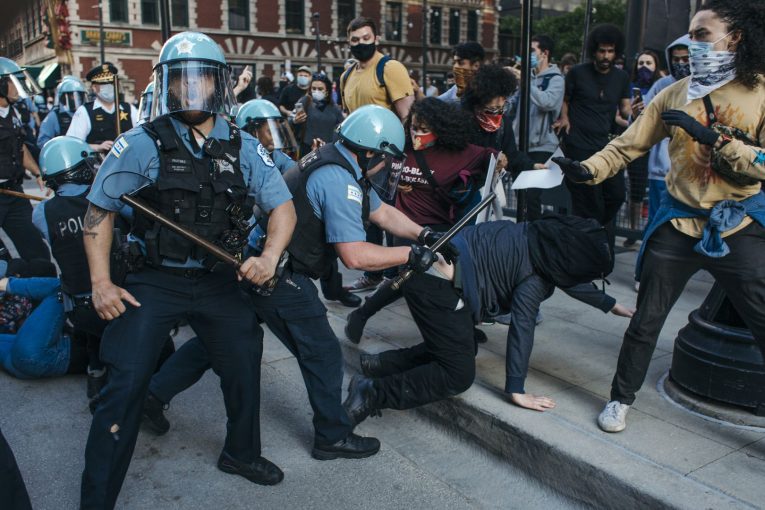

By Elizabeth Garabedian
WASHINGTON- A number of prominent civil rights organizations have sent a letter to Senate negotiators concerning police officer qualified immunity.
They fear current Senate legislation may lead to “less police accountability, not more.”
Certain parties in the Senate negotiations are looking to pass a bill that would include qualified immunity. Civil rights groups are opposed, because, in California and other states now,  individual law enforcement officers would not be held liable for their actions but rather the agencies they work for.
individual law enforcement officers would not be held liable for their actions but rather the agencies they work for.
Civil rights organizations worry about the effects that a Senate bill like this could have on individuals’ rights, and how this legislation could adversely affect victims of police misconduct.
Udi Ofer, director of the ACLU’s Justice Division, stated that there is the “opportunity to create strong police accountability, yet we have serious concerns about the current path of negotiations.” That is why they are calling for increased regulations and restrictions on police officers, hoping to bring an end to incidents of violence.
In 2020, in the wake of the summer protests, the House passed legislation that ended qualified immunity for law enforcement as protestors sought justice for victims of misconduct. The Justice in Policing Act provided reforms in certain areas of policing including use of force standards, which civil rights groups hope to have reaffirmed in new legislation.
Civil rights organizations are urging the Senate to make a decision that will not stagnate the progress that has been made concerning police accountability over the last year.
Ofer added, “A meaningful bill would include provisions to not only hold police accountable, but also to rein in police use of force. We are worried that the current path of negotiations may actually lead to less police accountability, not more.”

If We The People are held to accountability, so should everyone else be held to the same standard. In fact, I have always believed that those in positions of power should be held to a higher standard, not a lower one, especially due to the type of power, control and influence they hold over many others.
Immunity for judges, Qualified Immunity for law enforcement officers and others, and more, is far more than just a “get out of jail free” card, it is a ticket to fraud, corruption, abuse, murder, cover ups, Constitution violations, racketeering, and much more. It is an “Ill wind that blows no good.”
Each of us are responsible for what we say, think and do, whether we want to be or not.
Many an action taken by a single individual often has a rippling affect in society and in the universe.
I am reminded of the eloquent words spoken by Supreme Court Justice Louis Brandeis, in the case of Olmstead v. United States, when he said:
“Decency, security and liberty, alike demand that government officials shall be subjected to the same rules of conduct that are commands to citizens. In a government of laws, existence of the government will be imperiled if it fails to observe the laws scrupulously. Our government is the potent omnipresent teacher. For good or ill, it teaches the whole people by it’s example. Crime is contagious. If the government becomes a law breaker, it breeds contempt for the law; if invites every man to become a law unto himself; it invites anarchy. To declare that in an administration of criminal laws the end justified the means– to declare that the government may commit crimes in order to secure the conviction of a private criminal– would bring terrible retribution. Against that pernicious doctrine this Court should resolutely set its face…
And so should every law enforcement officer, student practitioner, supervisor, and administrator…”